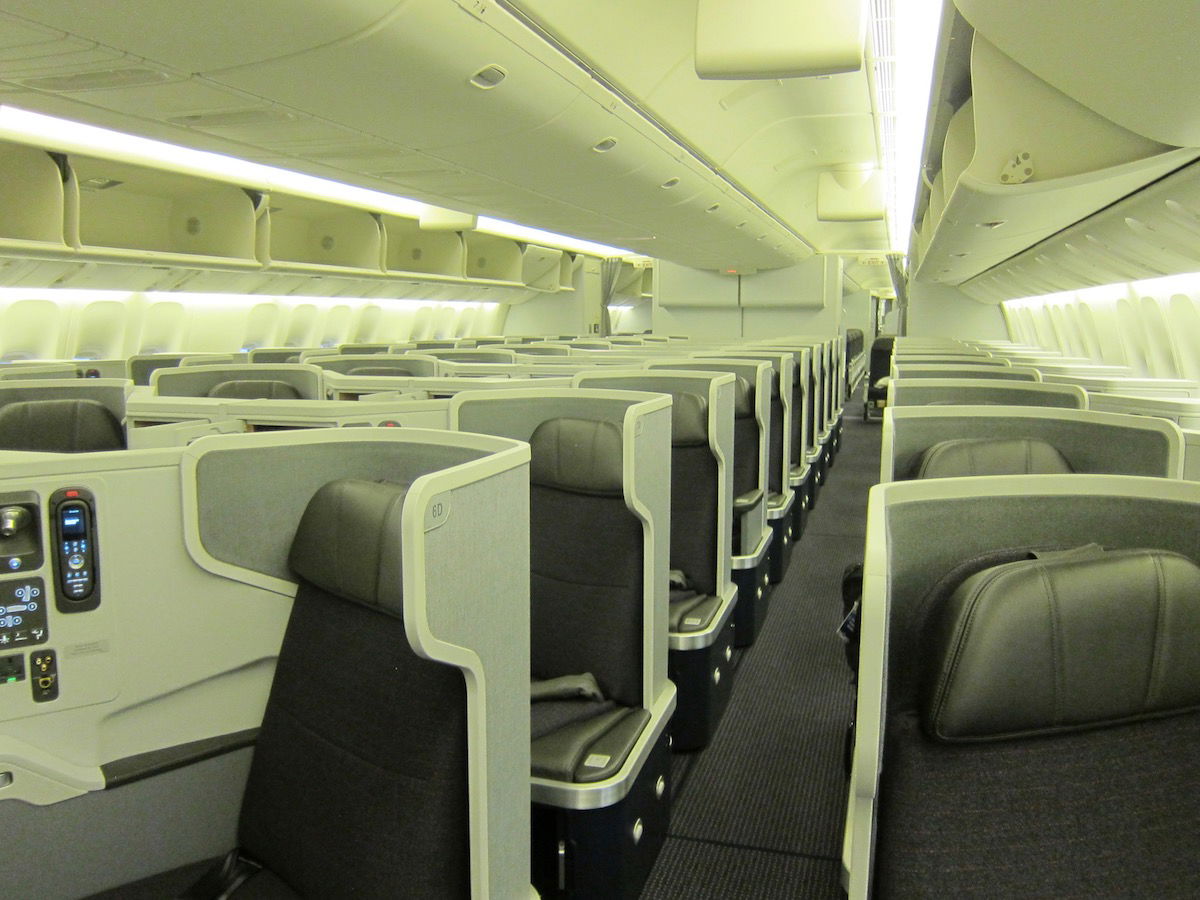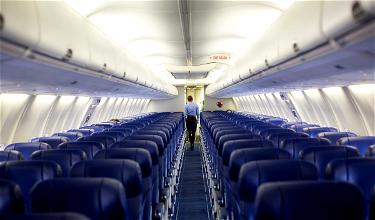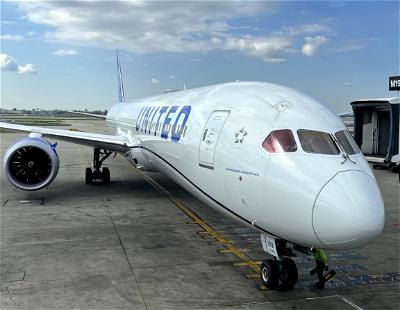Investors may soon be trading parts of frequent flyer programs, and that’s probably not great news for consumers…
In this post:
Airline loyalty programs are worth billions
Frequent flyer programs are often the most valuable assets that airlines have. While these programs were initially founded — as the name suggests — as a way of generating loyalty, they’ve grown into beasts of their own, and have made their way into our everyday lives.
Analysts suggest that the combined value of the top 100 airline loyalty programs is around $200 billion, so that’s pretty remarkable.
These programs have proven a real lifeline to some airlines during the pandemic. We’ve seen several major US airlines leverage frequent flyer programs to raise billions in liquidity, which makes perfect sense in a bind.
Well, we could soon see airlines leveraging frequent flyer programs even during normal times.
 Airlines have already leveraged loyalty programs to raise liquidity
Airlines have already leveraged loyalty programs to raise liquidity
New system for raising capital with loyalty programs
JPMorgan Chase & Affinity Capital Exchange (ACE) have announced plans to work together to provide issuers of loyalty programs the ability to augment secured debt financing by developing a new class of loyalty points.
ACE is a fintech company in the loyalty finance space, and JPMorgan Chase is also involved in the loyalty program world through its many multi-billion dollar agreements with airlines, hotels, and more.
With this plan:
- Airlines and hotels would more easily be able to use the value of their loyalty programs to raise capital from lenders, institutional investors, and operating partners
- Rather than just leveraging programs for emergency financing, they’d be able to make programs a recurring, renewable source of liquidity
- Loyalty programs could use ACE’s platform to pledge a part of their loyalty program as collateral, rather than the whole thing
- Split off pieces of loyalty programs would be referred to as “Reserve Points,” and then could be traded by institutional investors
- They would essentially be turning loyalty programs into an asset class, giving a wider array of investors access to loyalty programs
 Airlines could leverage parts of their loyalty programs
Airlines could leverage parts of their loyalty programs
What would this mean for loyalty program members?
It sure seems to me like this would be bad news for consumers, at a minimum indirectly. While it doesn’t have to directly alter the value proposition of a program, it seems highly likely that it will:
- I can appreciate that loyalty programs are valuable assets, but directly commoditizing individual aspects of them is unlikely to be positive for consumers
- This system would do little to incentivize members to actually be loyal to the airline, so would likely lead to even more devaluations long term for frequent flyers
- In general airlines being even more leveraged can’t be good for consumers
So yeah, I’m curious to see if this gets off the ground and what airlines bite. I certainly could be wrong, but I’m skeptical…
 Long term this would almost certainly be bad for news for consumers
Long term this would almost certainly be bad for news for consumers
Bottom line
While I think it makes perfect sense for airlines to leverage frequent flyer programs in an emergency, I’m not thrilled at the prospect of frequent flyers being traded by investors the same way as corn futures.
With this plan, airlines would be able to pledge parts of their loyalty program to raise funding, and then investors could trade them.
What do you make of all of this?





@JG exactly
I miss the days when you flew a mile, got a mile and redeemed a mile. I no longer understand any of this.
@Bitzer
Sure that is fair, but they can do that with any sort of loan they want so if you want to make the argument that it gives them more access to loans and therefore makes them more likely to act irresponsibly that is fair.
What I was saying is not true is that this product is not unique in that regard. This is no worse for consumers and FFP participants than it is...
@Bitzer
Sure that is fair, but they can do that with any sort of loan they want so if you want to make the argument that it gives them more access to loans and therefore makes them more likely to act irresponsibly that is fair.
What I was saying is not true is that this product is not unique in that regard. This is no worse for consumers and FFP participants than it is if an airline or hotel take a loan out against any of their other assets. Just because the FFP is collateral does not have any impact on the actual program itself because investors would not be owning the program any more than they do now. What is written here is fear based and lacks an understanding of financial instruments was all I am saying.
I think @Bob is correct. This will undoubtedly happen because future US governments will have to raise all manner of taxes to overcome the massive deficits incurred over the last three years, and taxing frequent flyer miles earned through business travel will strike policymakers as a relatively painless way to increase revenues.
@Bob unfortunately that's a thing in many countries
@JG
Fantastic, where can I buy airline miles credit default swaps?
It is bad for consumers, for a very simple reason: if I'm the CEO or the CFO or sit in the board of a company, my only incentive is the price of stock, given that my bonus (pretty much all the millions o make a year) are tied to the share performance of the company I work for. The higher the gains,...
@JG
Fantastic, where can I buy airline miles credit default swaps?
It is bad for consumers, for a very simple reason: if I'm the CEO or the CFO or sit in the board of a company, my only incentive is the price of stock, given that my bonus (pretty much all the millions o make a year) are tied to the share performance of the company I work for. The higher the gains, the higher my bonus. It will be very tempting to print money by creating miles CDOs and trading them, using this money not to invest in the airline structure to secure a future, but to make the share prices go up, by buying back stock. If American airlines can issue bonds to do that, why can't Delta issue points collateralization to do the same? At the end, everyone wins, except the little guy that has to lose his job and suck it up while the fat cats made millions destroying companies for their own profit.
Lucky,
This is relevant to miles. Have you tried the Free Now app yet?
You can also add your Miles&More number and then also earn Lufthansa Miles on rides in Germany. A bit like Lyft and Delta SkyMiles were in America, last year at least.
Not many are usually earned in a single journey, but I also find it a good way to keep the accounts active while not flying as often.
@Max - Blockchain is definitely going to be part of it, it's the best solution for a multi-party consortium like this. Isn't Asia Miles already using a Blockchain platform and Avianca launching it soon?
They should have thrown in some hype-words such as crypto, blockchain, ...
Next up: Taxing miles as income when flying for work.
This is either click bait or very misinformed.
The investors would not be "trading frequent flyer points" they would be trading what is essentially an asset backed security with the underlying collateral being the loyalty points but this is fundamentally a debt instrument. JPM and this ACE company would collect all the various parts of the loyalty program and sell shares of it for the investors but investors would not be looking to buy...
This is either click bait or very misinformed.
The investors would not be "trading frequent flyer points" they would be trading what is essentially an asset backed security with the underlying collateral being the loyalty points but this is fundamentally a debt instrument. JPM and this ACE company would collect all the various parts of the loyalty program and sell shares of it for the investors but investors would not be looking to buy this because of the underlying asset but rather the interest terms on the loans. The only way this ends bad for consumers would be if the underlying company defaulted on the loan.
Surprised it took this long given how many types of ABS from car loans to credit card debt.